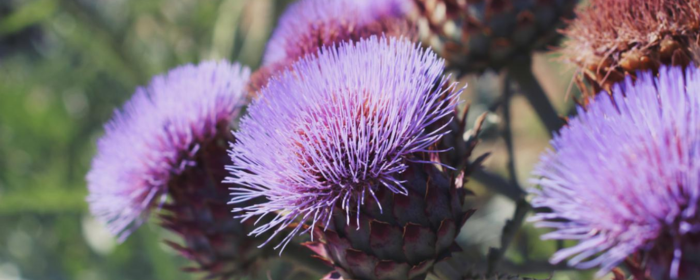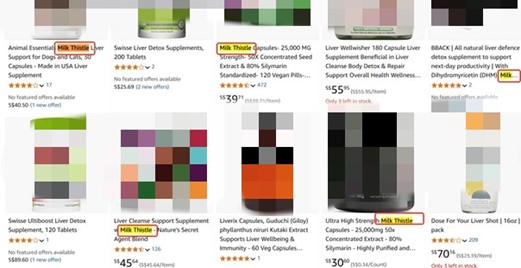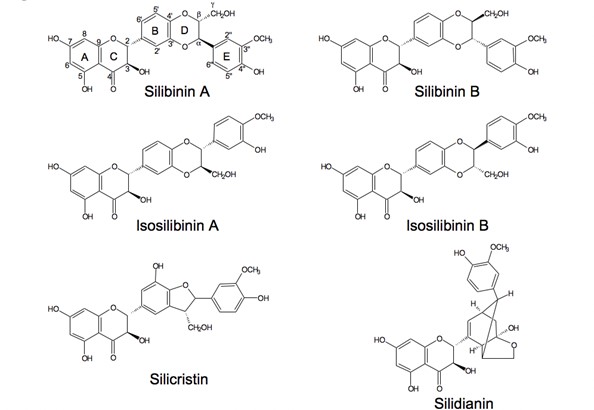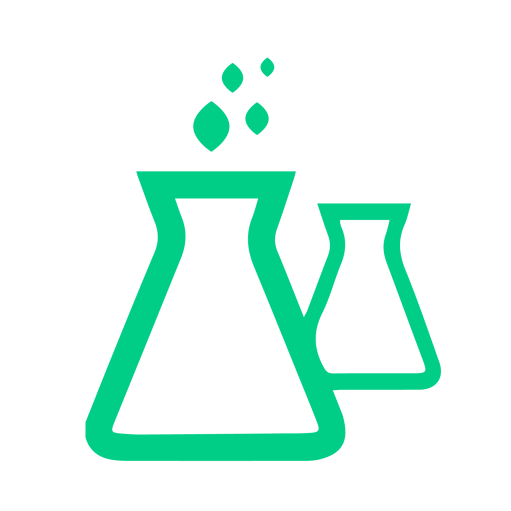
When searching for liver support supplements on the Amazon platform, many results indicate that the products contain milk thistle. This demonstrates the popularity of this ingredient in the market. In this context, we must clarify: Does milk thistle truly support liver health?

The Active Component of Milk Thistle for Liver Health — Silymarin
Milk thistle (Silybum marianum) is a common herbaceous plant in the Asteraceae family, adaptable to various environments. As early as the 3rd-4th century BC, the ancient Greeks used milk thistle to treat jaundice. By the 16th-17th centuries, the British herbalist Gerard stated, “Milk thistle is the best remedy against all melancholic diseases.”
With deeper research, milk thistle began to be used in more applications, such as anti-inflammatory and anti-allergic treatments, lowering blood lipids, and resisting radiation. The active component responsible for these effects is silymarin. Silymarin is a collective term for a large class of flavonoids extracted from milk thistle, consisting of four main types: silybin, silicristin, silidianin, and isosilibinin. Among these, silybin is the most abundant and possesses the highest activity.

Currently, silymarin and its derivatives are used in some liver support medications. The indications for these silymarin-based drugs are quite similar, generally targeting toxic liver damage, chronic viral hepatitis, and cirrhosis as part of supportive therapy.
Why Is Milk Thistle So Popular in the Market
Numerous clinical trials continuously confirm the effectiveness of silymarin in improving liver function, its antioxidant and anti-inflammatory properties, as well as its ability to regenerate liver cells. Such a volume of scientific research not only boosts consumer confidence but also encourages more people to utilize milk thistle as part of their daily routine of staying healthy.
Also, since it is a natural extract of a plant, milk thistle is very inexpensive to manufacture and sells at a price that is affordable. This makes milk thistle an affordable and accessible liver support supplement that is well-suited to consumers who need to take it long term in order to maintain a healthy liver.
Other Alternatives to Milk Thistle
Although milk thistle is highly popular due to its outstanding liver-protective effects, there are several other liver support alternatives available in the market.
Curcumin
Curcumin is the active compound extracted from turmeric. It possesses powerful anti-inflammatory and antioxidant properties, which can reduce liver inflammation and inhibit fibrosis progression. Multiple studies have shown that curcumin has potential benefits in managing non-alcoholic fatty liver disease (NAFLD) and alcoholic liver disease, improving liver function indicators and reducing liver fat accumulation.
Salvia miltiorrhiza (Danshen)
Danshen contains active components such as tanshinone and salvianolic acid, which have anti-inflammatory, antioxidant, and anti-fibrotic effects. In the treatment of liver fibrosis and chronic liver disease, Danshen is considered to have potential as an adjunct therapy, improving liver function and structure.
Pueraria (Kudzu Root)
Kudzu root is rich in puerarin and daidzein. These compounds help improve blood circulation, reduce the liver’s burden, and promote liver detoxification functions. The liver-protective effects of these ingredients may not be as significant as those of milk thistle and curcumin. They are suitable for liver health issues caused by poor blood circulation and for individuals needing enhanced detoxification functions.
